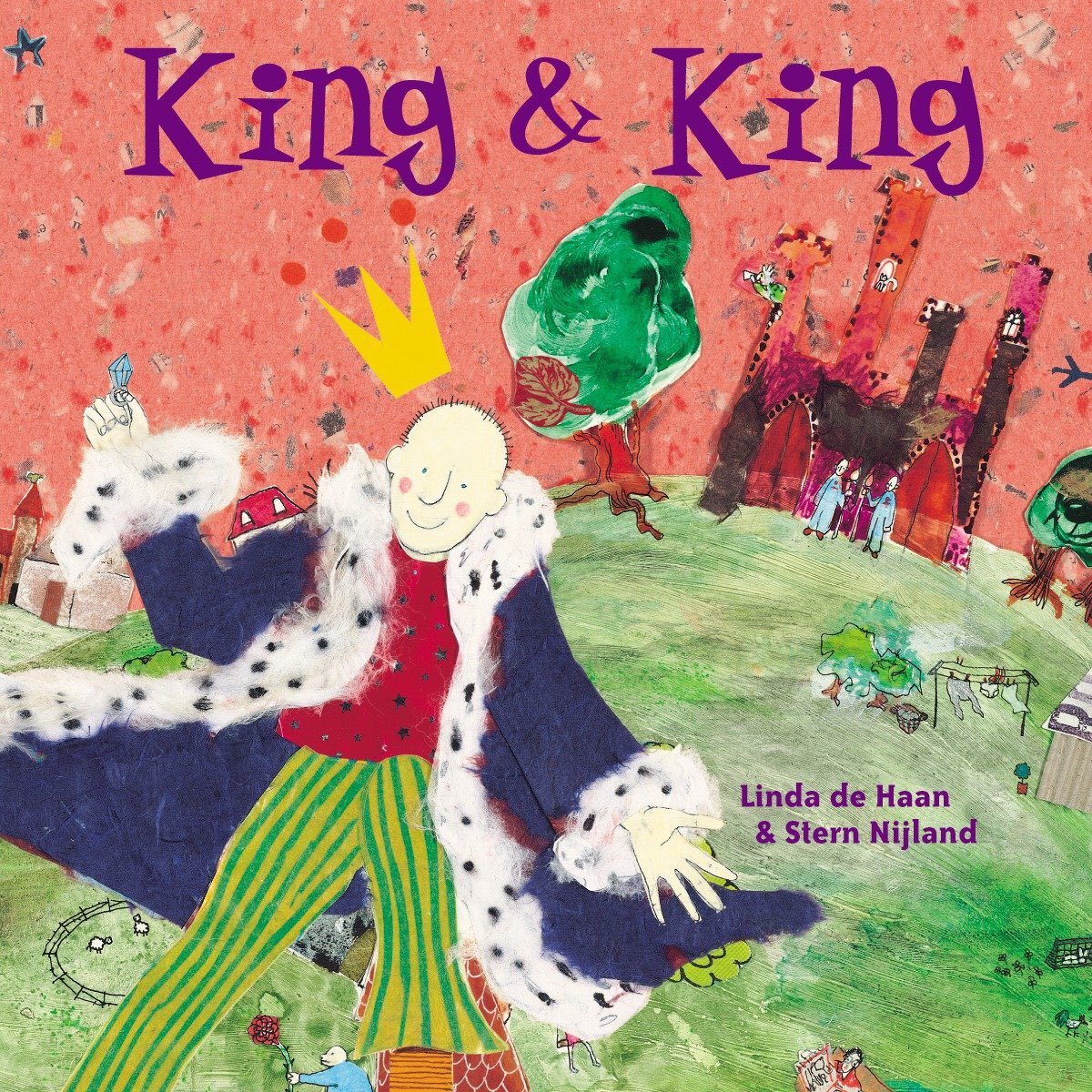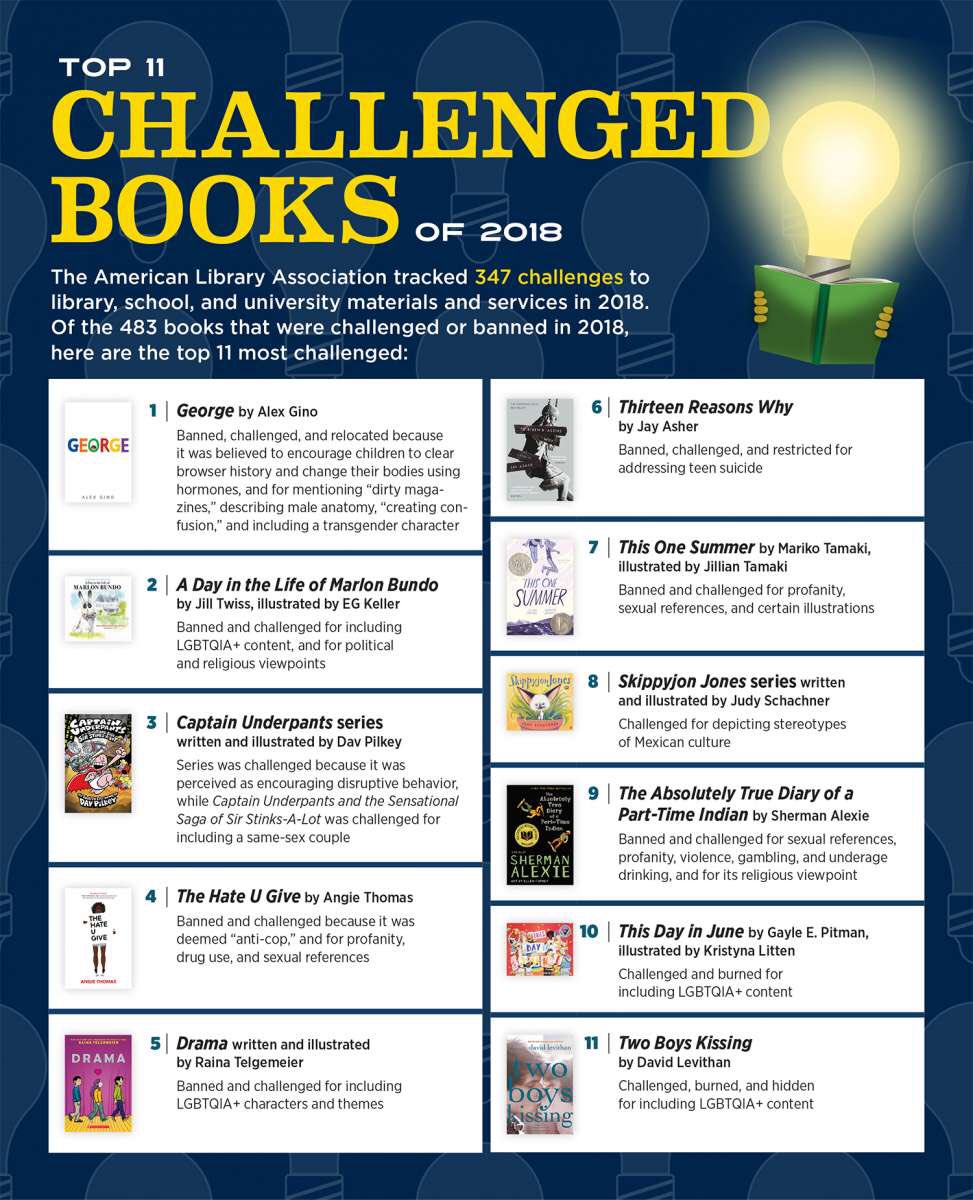My fist job interview for a #teacherlibrarian position took place at an elementary school in a very conservative part of NC. I will never forget it, in large part, b/c the principal of the school only asked me one question which was, “would you put this book in our library?” https://abs.twimg.com/emoji/v2/... draggable="false" alt="🧵" title="Thread" aria-label="Emoji: Thread">...
https://abs.twimg.com/emoji/v2/... draggable="false" alt="🧵" title="Thread" aria-label="Emoji: Thread">...
As a brand new librarian, who had only ever taught middle/high school, I’d never read Nijland and De Haan’s King and King (which is the story of a prince who is charged w/finding a princess to be his queen, but who instead falls in love w/another prince) so I gave it a quick...
read and responded w/ “I would follow district policy, but if it were up to me, yes... I’d put it in the library.” Then I told the story of a boy I knew in the 4th grade who had 2 moms and how great it would have been for him to have access to a book like this back then. The...
principal responded by saying she didn’t have any more questions and that the interview was over. (An aside: over the years, I’ve kept up w/that school and they’ve been through many principals and many more librarians, so as Julia Roberts would say, “big mistake. Huge.”) When...
I did land a job (at a middle school in the same district, but w/a much better principal) one of the first things I did was add a copy of King and King to the collection. The truth is, all these years later, I’m really very grateful for that interview experience b/c it set me...
up for success when it came to future book challenges. (And there were plenty to come). It’s sad that we are still fighting these battles in 2020 and that the majority of books that are removed from libraries continue to be those that feature #LGBTQIA stories/experiences. And...
yet, here we are. Over the years, I’ve developed some strategies that have worked consistently when dealing with challenges of this type. Here they are:
1. Have an up to date materials selection policy that includes current information related to all of the following: a)books..
1. Have an up to date materials selection policy that includes current information related to all of the following: a)books..
as tools for both SEL and trauma informed teaching. b) Marriage equality and identity based discrimination c)National trends related to inclusivity and #ownvoices in childrens publishing and d)scholarship related to excellence in LGBTQIA publishing for young people.
2) Have an active and involved library advisory board or committee who already feels invested in the library and who trusts your work on behalf of children. A committee that only meets when someone challenges a book won’t be prepared for a nuanced conversation that is informed...
by their own experiences with you and in the library. A committee that already knows you and your work and who feels invested in both will come to the table with information that will allow them to better serve ALL kids in the library.
3) Have an “opt out” option ready for...
3) Have an “opt out” option ready for...
parents who don’t want their kids exposed to a specific book. Parents always have the right to choose what’s best for their own child. Problems arise, however, when one parent (or a small group) is allowed to make those decisions for all families. Having an easy way for the...
complainant to opt out can prevent the latter from happening.
4) Focus on common ground. When talking to parents who have a concern, it’s easy to focus on the beliefs you don’t share - especially when those beliefs cause harm. Still, I was most successful at bringing book...
4) Focus on common ground. When talking to parents who have a concern, it’s easy to focus on the beliefs you don’t share - especially when those beliefs cause harm. Still, I was most successful at bringing book...
challenges to a successful end when I focused on shared beliefs. For example, I found that most parents were unaware of the fact that LGBTQIA kids are more likely to contemplate, attempt and commit suicide than their cis/straight peers. While we may not share the beliefs...
that lead some people to feel that identity is a choice or that some identities are inappropriate, surely we can agree that none of our kids should feel so unsafe and unwelcome in the world that they see ending their life as the only option. When posed in this way, the book...
in question can be framed as a lifeline for kids who are more likely to be in peril than their peers. But more importantly, it reframes ALL the participants in the challenge process as being good people who all want good things for kids. That parent can still opt out for...
their own child, and many will. But I have found that sometimes, when we reframe the ask, parents actually want their kids to participate. While they may be convinced that their child will never need the lifeline of a book whose story allows them to be seen, they sometimes DO...
see the value of their own kid being able to point to those books as resources for their friends, etc.
And finally...
5) Prepare/plan with the end in mind. As you build procedures and committees and resources to deal with challenges ask yourself: what’s the best possible...
And finally...
5) Prepare/plan with the end in mind. As you build procedures and committees and resources to deal with challenges ask yourself: what’s the best possible...
outcome? What’s the worst that can happen? Then prepare on/off ramps for the outcomes in between.
I want to live in a world in which LGBTQIA stories don’t have to be framed in tragedy/risk in order to be defended. Shoot, I want to live in a world in which identity is not...
I want to live in a world in which LGBTQIA stories don’t have to be framed in tragedy/risk in order to be defended. Shoot, I want to live in a world in which identity is not...
recognized as a reason to challenge the existence of books (and more importantly humans).
That said, one of the best ways I know to create that world is through the act of buying/reading and sharing books that normalize the queer experience for all kids.
King and King may...
That said, one of the best ways I know to create that world is through the act of buying/reading and sharing books that normalize the queer experience for all kids.
King and King may...
have kept me from getting one job, but it set me on a path toward being a better librarian. You may not win all of these battles, but the fight is worth having for as long as we have to have it.
LGBTQIA Teen Suicide Info: https://www.thetrevorproject.org/resources/preventing-suicide/facts-about-suicide/">https://www.thetrevorproject.org/resources...
https://www.childtrends.org/blog/high-schoolers-identify-lgb-likely-straight-peers-report-feeling-sad-hopeless-attempting-suicide">https://www.childtrends.org/blog/high...
LGBTQIA Teen Suicide Info: https://www.thetrevorproject.org/resources/preventing-suicide/facts-about-suicide/">https://www.thetrevorproject.org/resources...
https://www.childtrends.org/blog/high-schoolers-identify-lgb-likely-straight-peers-report-feeling-sad-hopeless-attempting-suicide">https://www.childtrends.org/blog/high...

 Read on Twitter
Read on Twitter ..." title="My fist job interview for a #teacherlibrarian position took place at an elementary school in a very conservative part of NC. I will never forget it, in large part, b/c the principal of the school only asked me one question which was, “would you put this book in our library?”https://abs.twimg.com/emoji/v2/... draggable="false" alt="🧵" title="Thread" aria-label="Emoji: Thread">..." class="img-responsive" style="max-width:100%;"/>
..." title="My fist job interview for a #teacherlibrarian position took place at an elementary school in a very conservative part of NC. I will never forget it, in large part, b/c the principal of the school only asked me one question which was, “would you put this book in our library?”https://abs.twimg.com/emoji/v2/... draggable="false" alt="🧵" title="Thread" aria-label="Emoji: Thread">..." class="img-responsive" style="max-width:100%;"/>



